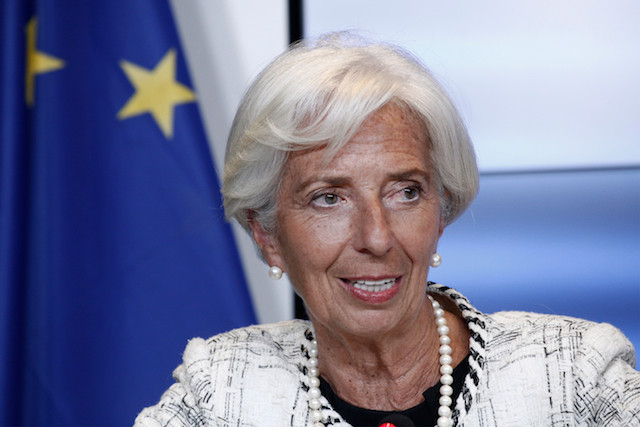In a speech in Washington, Christine Lagarde said governments must react to growing concerns that digital companies pay little tax in most countries where they operate, which denies exchequers vital funds for public services and welfare.
Last year, Philip Hammond, the UK chancellor, accused the international community of making painfully slow progress on developing globally recognised digital taxes. He said the UK would go it alone with a 2% surcharge on larger digital businesses.
This month, the French finance minister, Bruno Le Maire, outlined plans to raise about €500m from a 5% tax on 30 tech firms, including Google, Apple and Facebook.
Lagarde said a rethink was needed after several reports, including one by the IMF this month, found corporate tax systems failed to reflect changes in the global economy.
Without naming individual firms, she said: “An impetus for rethinking international corporate taxation stems from the rise of highly profitable, technology driven, digital-heavy business models.
“The ease with which multinationals seem able to avoid tax, and the three-decade long decline in corporate tax rates, undermines faith in the fairness of the overall tax system. The current international corporate tax architecture is fundamentally out of date.”
The intervention comes 18 months after the IMF said governments should reverse the trend for cutting the top tax rate paid by individuals, arguing the richest were not paying a fair share of tax.
The Washington-based organisation, which acts as the lender of last resort to financially-stricken countries, has also sought to put its weight behind the Paris climate agreement by advising countries on ways to reduce CO2 emissions while attempting to raise living standards.
Lagarde said IMF analysis showed the cost of multinationals shifting taxable profits to low-tax havens cost the poorest countries hundreds of billions of dollars in lost revenues.
A report this month found 150 of the poorest countries lost about $200bn in revenue per year, or about 1.3% of GDP.
She called on governments to collaborate to overcome logistical and legal obstacles to redrawing the tax rules. “By rethinking the existing system and addressing the root causes of its weakness, all countries can benefit, including low-income nations,” Lagarde said.
Hammond said he wanted to make sure “these global giants with profitable businesses in the UK pay their fair share”.
The Treasury calculated the tax, which is due to take effect next year, would raise about £400m. However, the Office for Budget Responsibility, an independent forecaster, suggested the tax could raise only £30m each from big tech firms such as Facebook, Amazon and Google.
Phillip Inman
